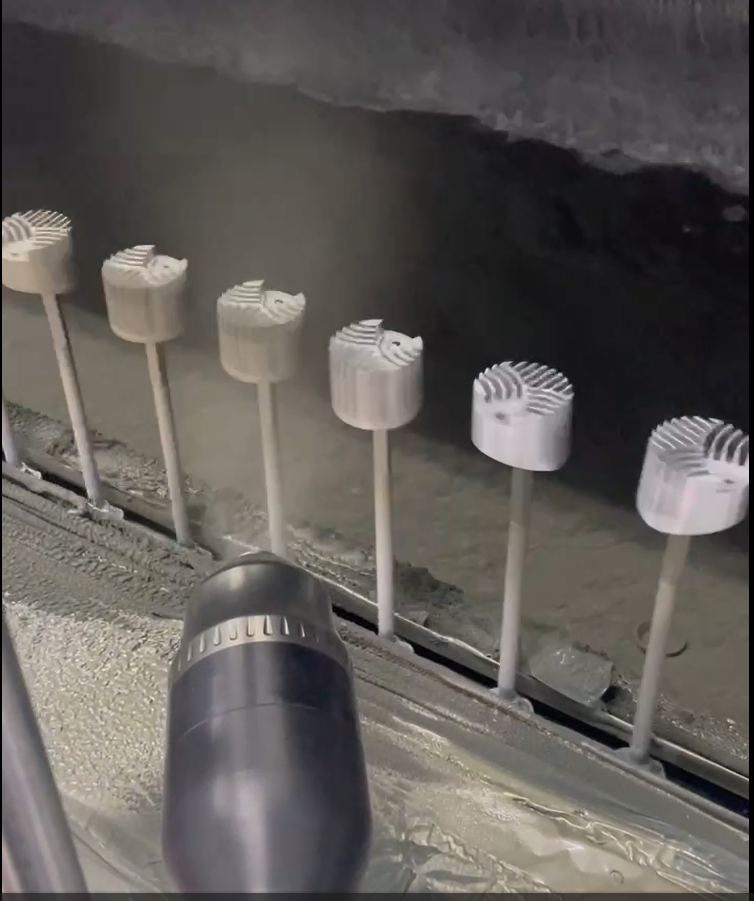Contact person: Ms Croesus
0769-81885105
Phone: +86 13622624429
E-mail: hda-sl01@hongdapt.com
Skype: hongdapt@outlook.com
QQ: 1550167687
Factory: Block A No336, Changqing North Road Chanan Town . dongguan China
Hotline:+86-13622624429

The electrostatic rotating bell spry system for the alumium lin spraying advantages of rotary bell spraying over traditional spraying methods, such as high efficiency, uniform coating, and saving coating, can be referred to in HDA605's electrostatic rotating bell spraying method, such as videos, or contact us for more technological information
1. Technical principles and advantages
Electrostatic rotary bell spraying: Using a high-voltage electrostatic field to charge the coating particles, the coating is uniformly sprayed onto the surface of the aluminum heat sink through a high-speed rotating rotary bell (rotary atomizer).
Core advantages:
Uniform coating, strong adhesion, reducing issues such as orange peel and sagging.
Increase the utilization rate of coatings by 30% -50% and reduce production costs.
Aluminum heat sinks suitable for complex structures, covering dead corners.
2. Key process parameters
Parameter recommendation range description
The electrostatic voltage of 60-80 kV is too high to easily penetrate the coating, while too low can result in insufficient charging.
The rotary cup speed of 25000-40000 RPM affects the atomization fineness, and excessive speed may cause the coating to scatter.
Spraying distance of 20-30 cm is prone to paint accumulation if the distance is too close, and uneven coating if the distance is too far.
The viscosity of the coating should be adjusted according to the surface roughness of the aluminum material for 15-25 seconds (Ford Cup No. 4).
3. Coating selection and pretreatment
Coating type:
High temperature resistant coating: Aluminum heat sinks need to withstand working temperatures of 80-120℃(such as silicon modified polyester).
Conductive primer: enhances the adhesion between aluminum substrate and coating, preventing electrostatic shielding effect.
Preprocessing steps:
Degreasing: Alkaline cleaning agents removepaintstains from aluminum surfaces.
Passivation: Chromation or phosphating treatment to enhance anti-corrosion performance.
Drying: Bake at 100-120℃for 10-15 minutes to ensure the substrate is dry.